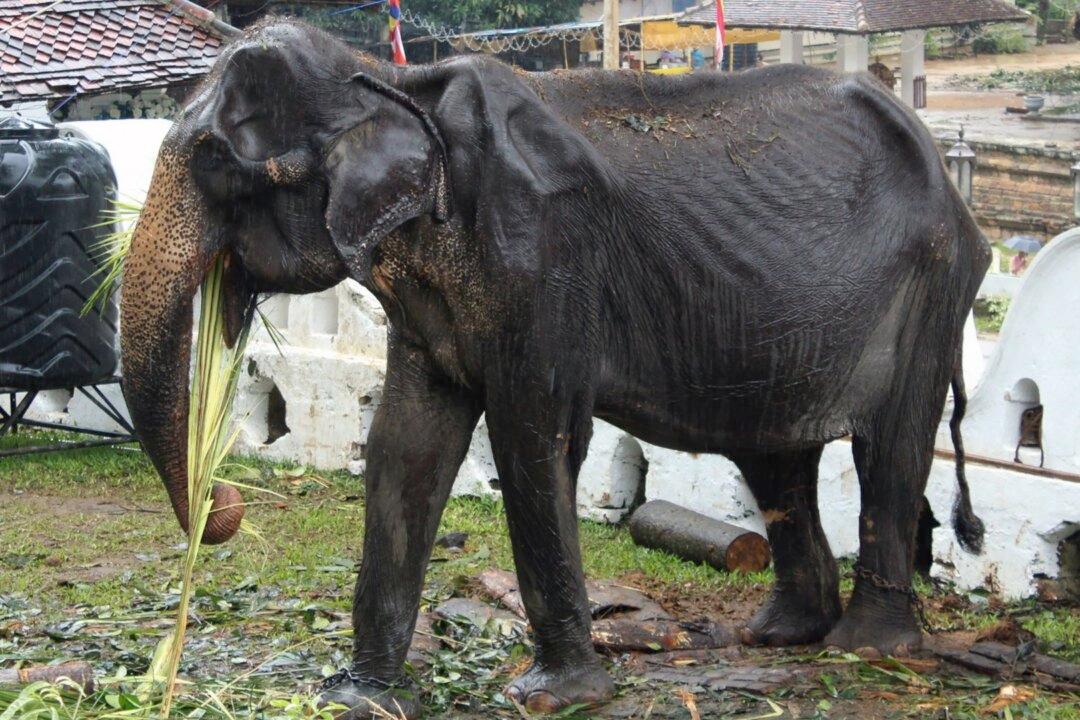Heartbreaking images of a malnourished 70-year-old elephant forced to perform in a Sri Lankan festival have been circulated online by an animal rights group, as it called for an end to animal exploitation in captivity.
The photographs, which were shared online by the charitable organization Save Elephant Foundation, based in Thailand, show an emaciated elephant collapsed on the floor after performing in Sri Lanka’s annual Esala Perahera Festival.





